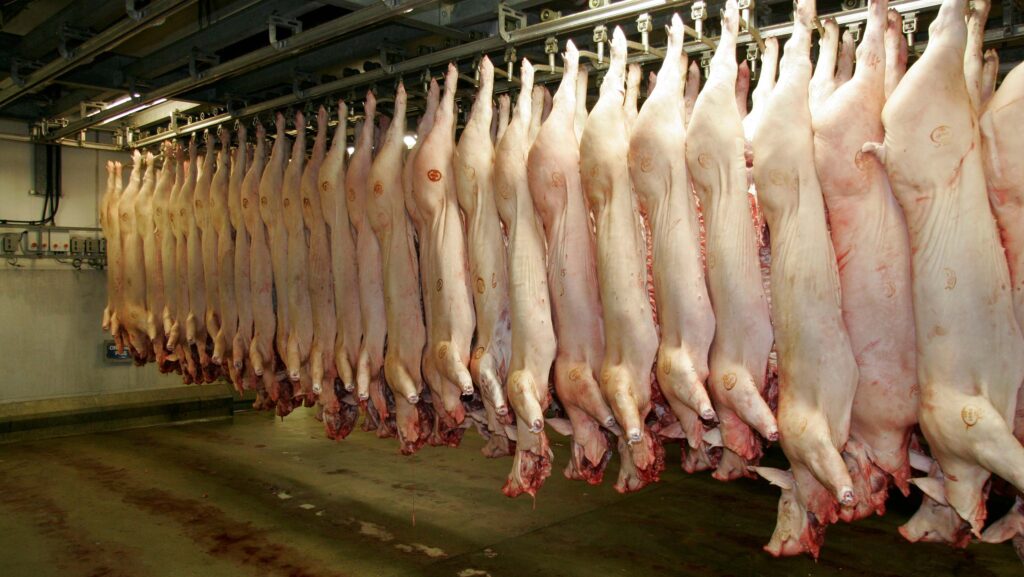Meat trade demands better conditions for abattoir vets
 © Tim Scrivener
© Tim Scrivener The UK government is being misled about the real reasons behind an alleged shortage of abattoir vets, according to the Association of Independent Meat Suppliers (Aims).
Recent discussions by the House of Commons Environment, Food and Rural Affairs (Efra) select committee have sparked debate over a perceived shortage of official veterinarians (OVs) willing to work in abattoirs.
The Efra committee hearing featured input from representatives from the Food Standards Agency (FSA), the British Veterinary Association (BVA) and Defra.
See also: Analysis: How can the small abattoir sector be saved?
Following the hearing, Aims called for “visionary leadership” within the UK veterinary profession and a comprehensive review of the role of vets in abattoirs and the broader food production chain, in order to find solutions to the perceived shortage.
“Thirty years ago, UK-trained vets, fluent in English and well-versed in British farming practices, supervised every slaughterhouse in the UK,” said Dr Jason Aldiss, head of external affairs at Aims, a trade association representing SME meat businesses along the supply chain.
“This changed in 1995 with the rise of veterinary employment agencies, importing large numbers of unemployed vets from the EU.
He said these vets, often with poor English skills, were paid low salaries and replaced UK-trained vets, leading to communication barriers and a diminished perception of the value of the vet in abattoirs.
Pet sector hiring problems
Dr Aldiss argues that the supposed shortage of vets in abattoirs diverts attention from a more pressing shortage in the pet sector.
He believes that vets with stronger English skills and knowledge of UK farming should be prioritised for public health roles, while those with less proficiency could serve in the pet sector, potentially reducing high fees in the companion animals sector.
Dr Aldiss also criticises the current regulatory framework for abattoirs, stating that it has remained largely unchanged for more than a century and fails to incorporate modern technology or address contemporary food safety risks.
For example, he suggests many tasks currently performed by OVs could be managed by paraprofessionals under a vet-led team approach, freeing up vets to focus on more complex duties.
The absence of electronic certification systems in exporting premises is seen as a significant waste of veterinary resources. According to some estimates, adopting a modern export certification system could immediately free up more than 100 full-time vets.
Two-tier system
Aims blames large veterinary employment agencies for prioritising profit over innovation and modernisation, flooding the market with non-UK trained vets and creating a “two-tier system that devalues the role of vets in the food supply chain”.
The Royal College of Veterinary Surgeons (RCVS) has exacerbated this issue by permitting vets with lower English language skills to work in abattoirs only, Aims says.
This policy has further devalued the OV role and made it difficult to recruit UK-trained vets, who generally seek roles that offer appropriate pay and meaningful work.
FSA rebuttal
However, the FSA rejected the claims from AIMS that the UK government is being misled about the real reasons behind a perceived shortage of OVs.
Natalie Sampson, the FSA’s head of veterinary advisory services, said: “These claims that the UK government is misled are inaccurate as it’s actually recent disruptions like Covid which have made a global shortage worse.
“We’re stable in terms of numbers of abattoir official veterinarians for now – thanks to our valued overseas vets – and we need to continue to work hard to retain the vets we have, train more here and make careers in veterinary public health more attractive.
“We’re developing long-term, sustainable solutions, based on a balanced and diverse workforce, working with partners and across government to make that happen so animals and consumers continue to be protected in the future.”
